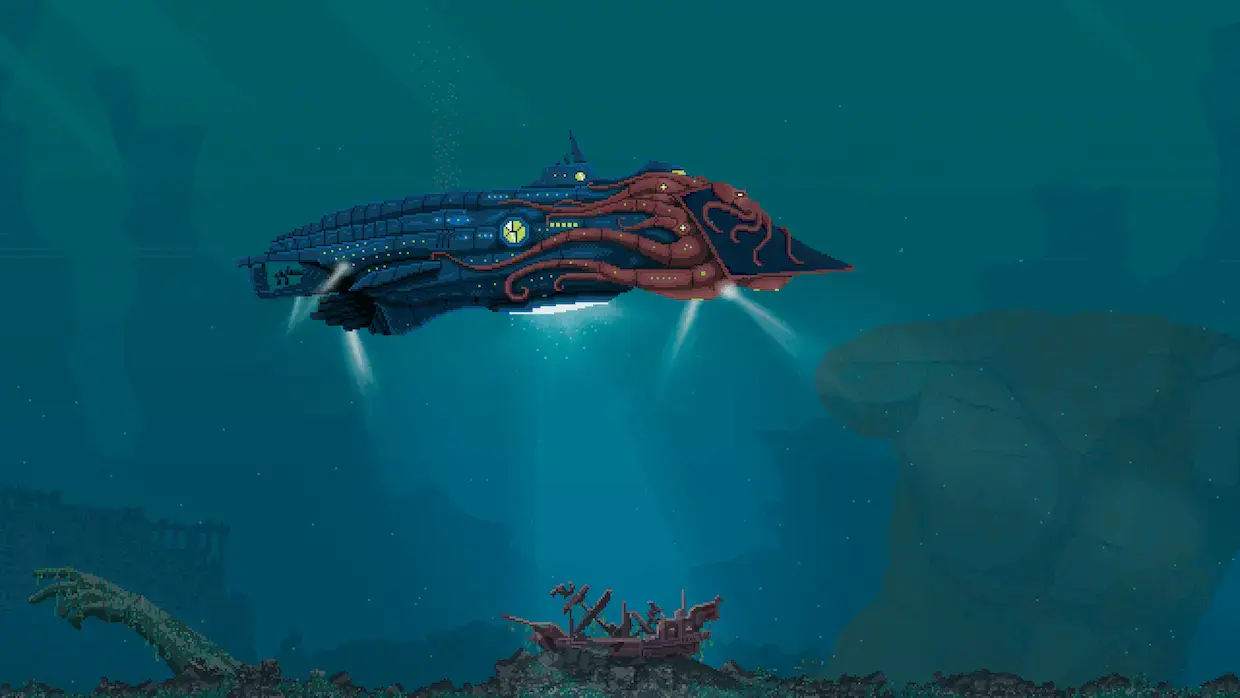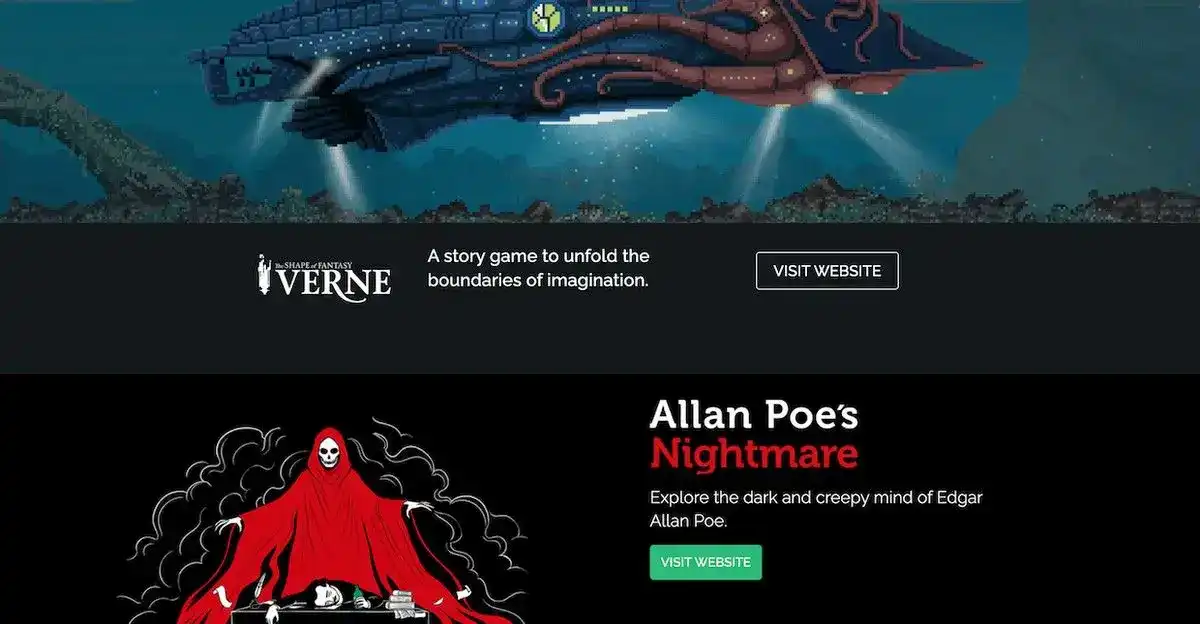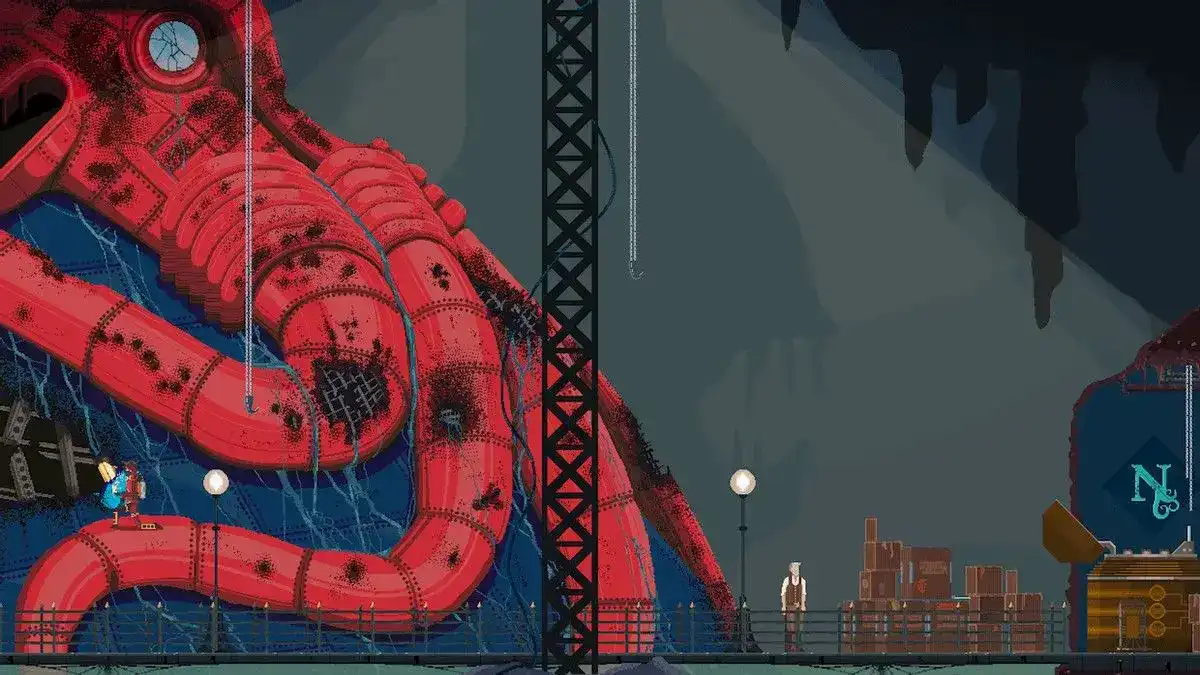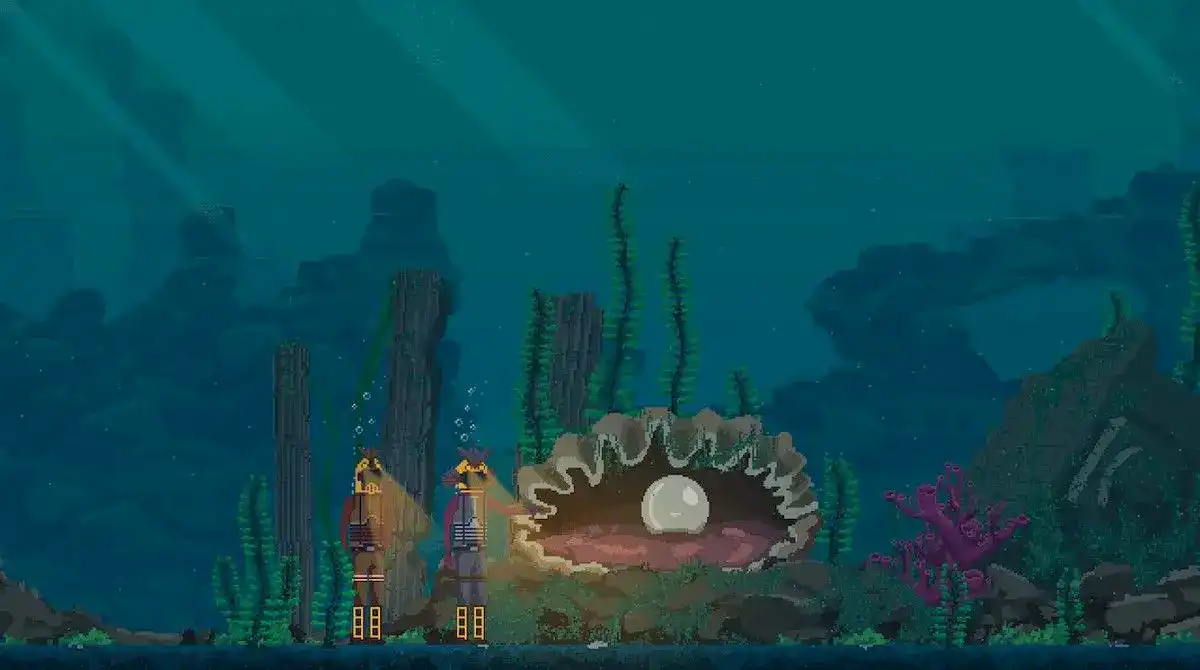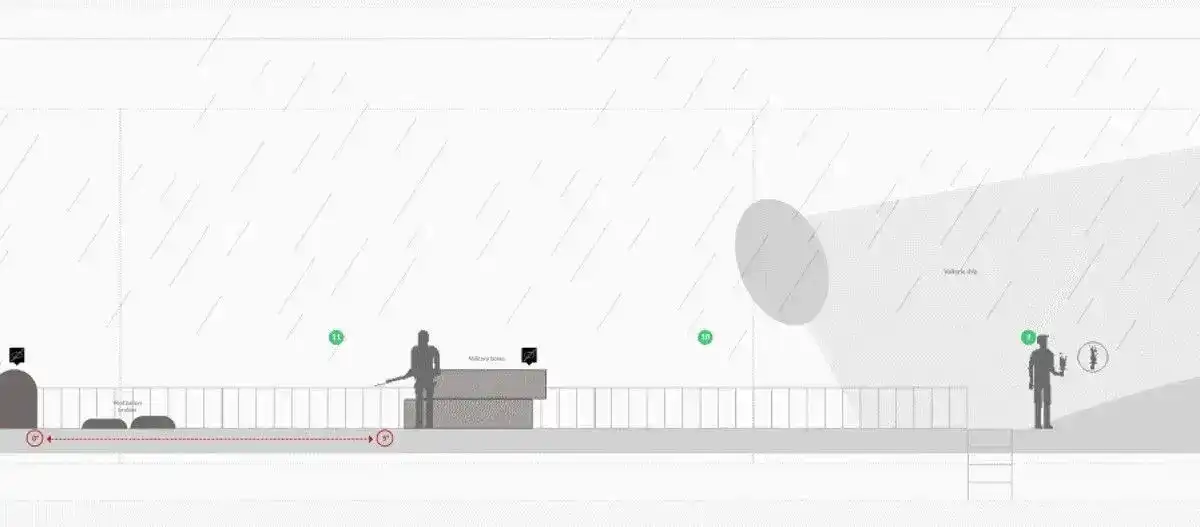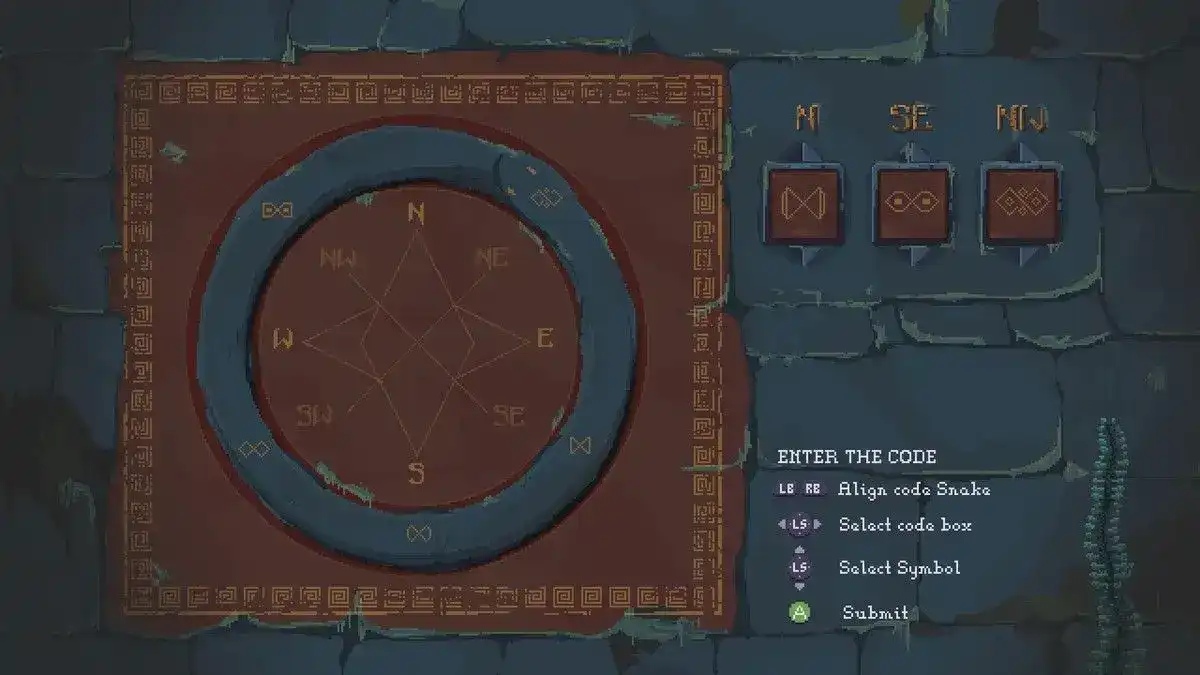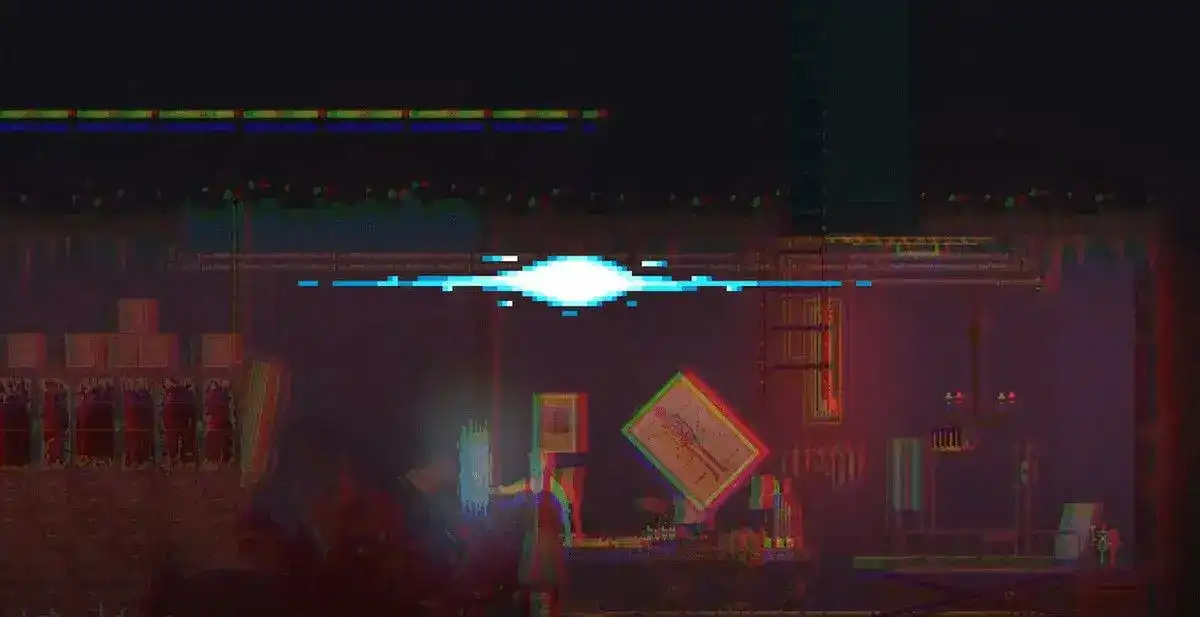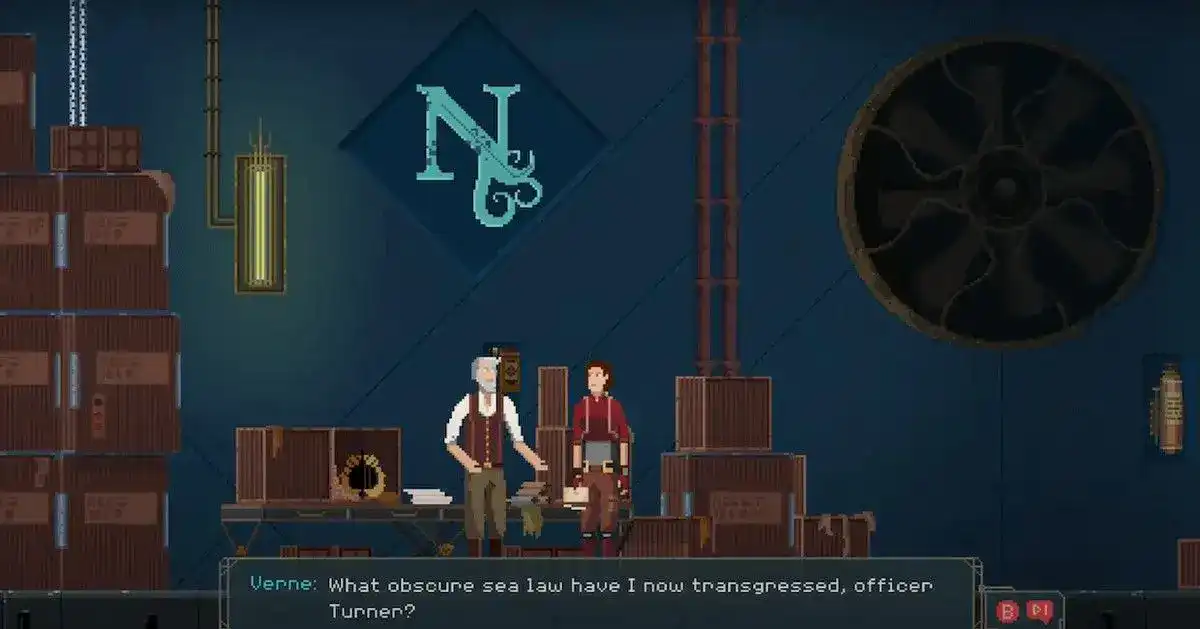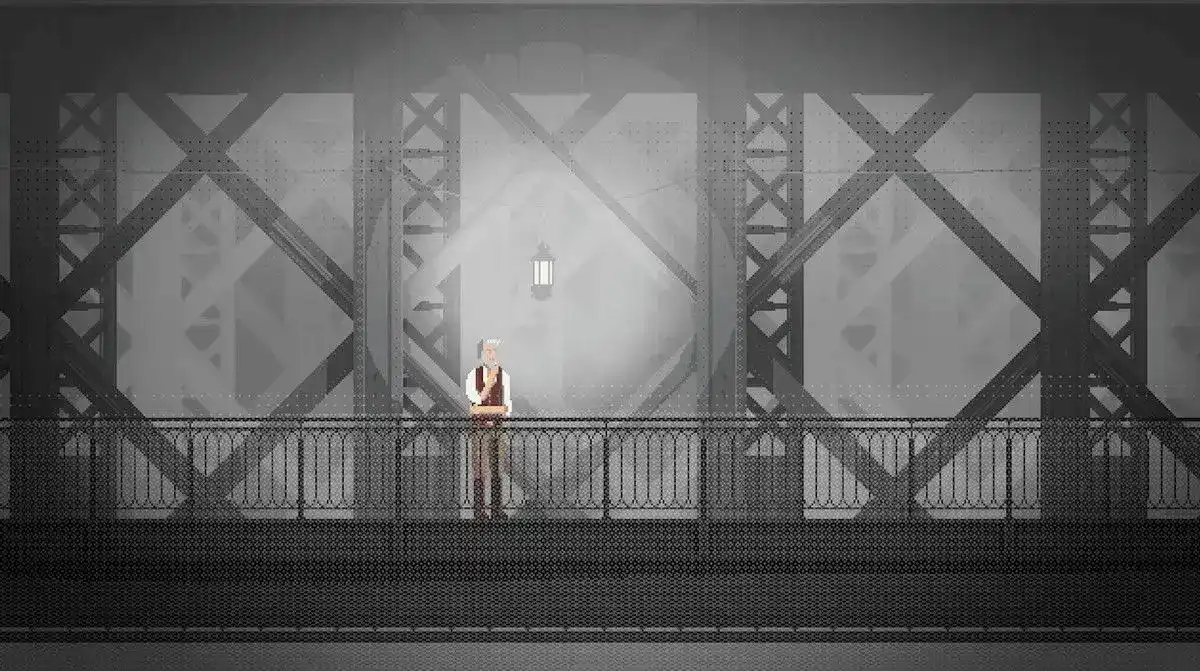When Brenda and I were given the chance to interview Gametopia for their upcoming game, Verne, we knew that we had to ask the team about their motivations for creating a game centered around a famous author. The title of the game is clear and to the point — this is a video game about Jules Verne, the French Novelist behind titles like Journey to the Center of the Earth and Twenty Thousand Leagues Under the Sea. With Jules Verne's literary figures and tales of exploration at its disposal, how deep does Verne go?
Verne is a narrative experience (we love to hear those words) that follows Jules Verne as he gets sucked into a parallel world where his previous works and imaginary places have become reality. Part puzzle game, part exploration, and part branching narrative, Verne is a story rich adventure game coming out in 2021.
Although a demo isn't available just yet, Daniel and Diego of Gametopia enlightened us about themselves, their previous works, and about Verne itself. Daniel is the game's narrative designer and pixel artist, while Diego is the CEO and senior developer — if there's anyone to ask for more about Verne, it's them.

A Look Into Gametopia
We thought the focus on literary figures was very interesting and distinct to Gametopia. Is there a reason or an inspiration behind why your studio chose to create games around classic authors like Edgar Allan Poe and Jules Verne?
Daniel: I love literature and I’m fascinated by the creative process of great authors and how through imagination you can change the world. Nowadays, our world is based on many of the inventions that Verne imagined, would have they existed if he had not imagined them? His works have inspired scientists and researchers who changed our world.
Much of the literature that we read today was born from Edgar Allan Poe, most great writers are influenced by him. For example, for Lovecraft, Poe was a great reference. In our days, Cthulhu and the world of Lovecraft is part of our culture (video games, board games, series, etc). Would that exist without Edgar Allan Poe?
That is why at Gametopia we have an obsession for people who changed our world through creativity. It’s our little tribute for making us enjoy so much with their works.
As a follow up to the last question: is this a trend we'll keep seeing where stories around these figures are created within games of different genres? For example, with Edgar Allan Poe as part of a horror game and Jules Verne as part of an adventure RPG?
Daniel: In my dreams, absolutely yes! I would love to make more games about other writers who had exciting lives and who I’m fascinated about, like Joseph Konrad or Raymond Chandler. As a screenwriter, what interests me the most is to tell (in both Verne and Poe games) how were their lives and those creative moments, the mental breakdown and the inspiration to write. For me, the most wonderful thing is understanding how they came to have those ideas.
Your website says that Gametopia develops video games "with a pinch of something more." We felt that this means Gametopia games always have a purpose beyond entertainment, such as education or cultural value. Can you elaborate on this sentence?
Diego: For us it’s important to communicate a message beyond the video game. Over the years, we have been involved in educational and awareness raising projects, with games such The Journey of Elisa, which helps to better understand the needs and characteristics of people with Asperger's Syndrome or Marrow Transplant, focused on children who are about to undergo a marrow transplant.
This has allowed us to be aware of the power that video games have to positively impact different types of audience, and it’s something that we always have in mind when we conceive a new idea for a video game. In our recent projects, such as Verne or Poe, this is something that we don’t put aside, our idea is to allow people to get closer to literature and to discover or re-discover the works of these great authors.
We noticed that the art style is drastically changed between the Edgar Allan Poe game and the Jules Verne game. We know that nostalgia is hinted at a lot in describing the game. Is that part of the reason behind the art direction change or are there other intentions there?
Daniel: Each world has its own visual code. When I think of Poe, even in his more adventurous works like The Narrative of Arthur Gordon Pym of Nantucket, there’s always that dark tone, those contrasts between light and dark. So, that’s why I decided to create a more aggressive style based on black and white with red touches.
Verne's world is completely different. If there’s one thing that all his books have, it is adventure, the wonder of discovery and hope. I can't think a better way to represent that than with pixel art. When I was a kid, I used to play the first graphic adventures of LucasArts. Those pixel art graphics awakened me to the emotions of adventure, of discovery and the hope of experiencing things that I could never experience in the real world. Many more dreams fit in a simple pixel art than in a new generation High Poly 3D model.
It seems like you have added a lot of features into Verne that were not part of your previous games, like voice acting and puzzle solving. Were any new features difficult to implement compared to your old games?
Diego: Verne is our first game for PC and consoles, and it’s our most ambitious project to date, so, from the beginning we have focused its design trying to take advantage of the features offered by these platforms. However, this brings a series of important challenges that we hadn’t had to face before, for example, the game story script has more than 200 pages, with 800 audio recordings, so we had to find an efficient way to handle the dialog system within Unity, its location, and the workflow between the technical team, the writers and voice actors.
Another important challenge is the performance optimization, when you start with a new project for PC or consoles, people think that you can give free rein to everything, because you have unlimited processing resources and the devices will be capable of everything, but nothing further from the truth: in order to reach as many players as possible, it’s necessary to keep optimization as a priority, thus, you must ensure that your game will work even in old computers, and that future porting to consoles is not going to be a nightmare process.
Exploring Verne
We noticed that the website says that the game is based on Jules Verne's life and his works. How much will we get to learn about Jules Verne's life, and which works are included in the game?
Daniel: The game is mainly based on Twenty Thousand Leagues Under the Sea, although it’s a different story. There are also snippets of Journey to the Center of the Earth, but throughout the game, both through environmental storytelling and unlockable elements, we will tell some of Verne’s main moments as a writer and curiosities of his work.
The game focuses on a key year for Jules Verne, 1863, when he just started publishing but hadn’t written his best works yet.
We read on the site that the player can use "an Atlantean ancient device that allows to rewrite the story and change Verne’s fate on certain moments." We've never heard of something like this in a game and am super curious about how this would work — is it like an undo or edit button?
Diego: This is one of our main mechanics, the use of the "Imag", it’s a device that allows to rewrite what has just happened at certain moments of the game, through different options such going back in time or creating some tools and events. For example, if you are trying to escape from a room, you can create an event that causes enemies to act differently and you can avoid them.
These will be predefined actions that you can use at certain moments in the game. Personally, I have always been a fan of everything that involves time manipulation, and being able to include some of this within Verne makes me very happy.
The site also notes that the dialogue (played by voice actors) will not be linear. Does this mean that when engaging in dialogue and choosing responses, players will also be changing the storyline or various relationships with other characters?
Diego: We have in total 12 characters with voices, who will have presence in non-linear dialogues, that means that, in certain branches of a conversation, you can choose between different answers, that will make you live the story in a different way depending on your selection, and also it will make certain events and relationships within the game slightly affected by your decisions. We would have liked the level of decisions to be deeper, but we are a very small indie studio and although we would like to, we cannot do Mass Effect. :-)
In the same thread as the previous questions, because there will be so much that is up to the player, will there be multiple endings? Or is the story fairly linear plot-wise despite the ability to change so much about it?
Diego: There will not, the main story will have only one ending. As I mentioned before, through the different options of the dialogues, what changes is the way that you go through the main story of the game.
Our favorite bullet point is this gem that states Verne is "a thrilling story that reflects the ability of the human being to imagine and tell stories." How do you plan to carry this out — perhaps through gamifying Verne's works or through the player's ability to reconstruct the stories themselves?
Daniel: Through the story of the game. Although, we have a main plot around a worldwide war conflict and the mysteries of Atlantis. All the storytelling is about the ability of the protagonist, Jules Verne, to tell those stories and how those characters, like Captain Nemo, live beyond their works, they become immortal and to this day, they are part of our society.
Thank you for taking the time to sit down and answer questions with us at Indie Story Games! Where can people follow or find you to keep up with Verne updates?
Daniel: Thank you for the community that you are building around narrative games, and thanks for giving us the chance to talk about our project.
Diego: Thanks Brenda and Josh, you can find more info about Verne on www.julesvernegame.com, we are giving a free download code of Poe’s games for people who subscribe to our newsletter. Also we are on all social media as @vernegame.
